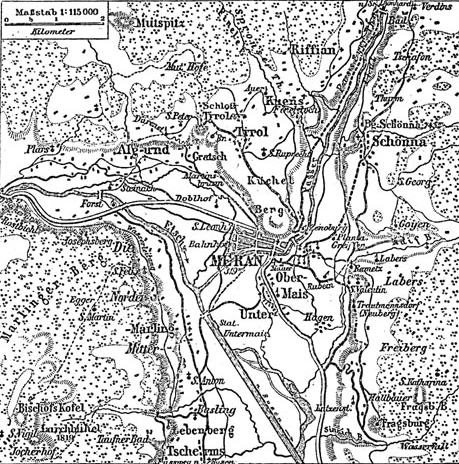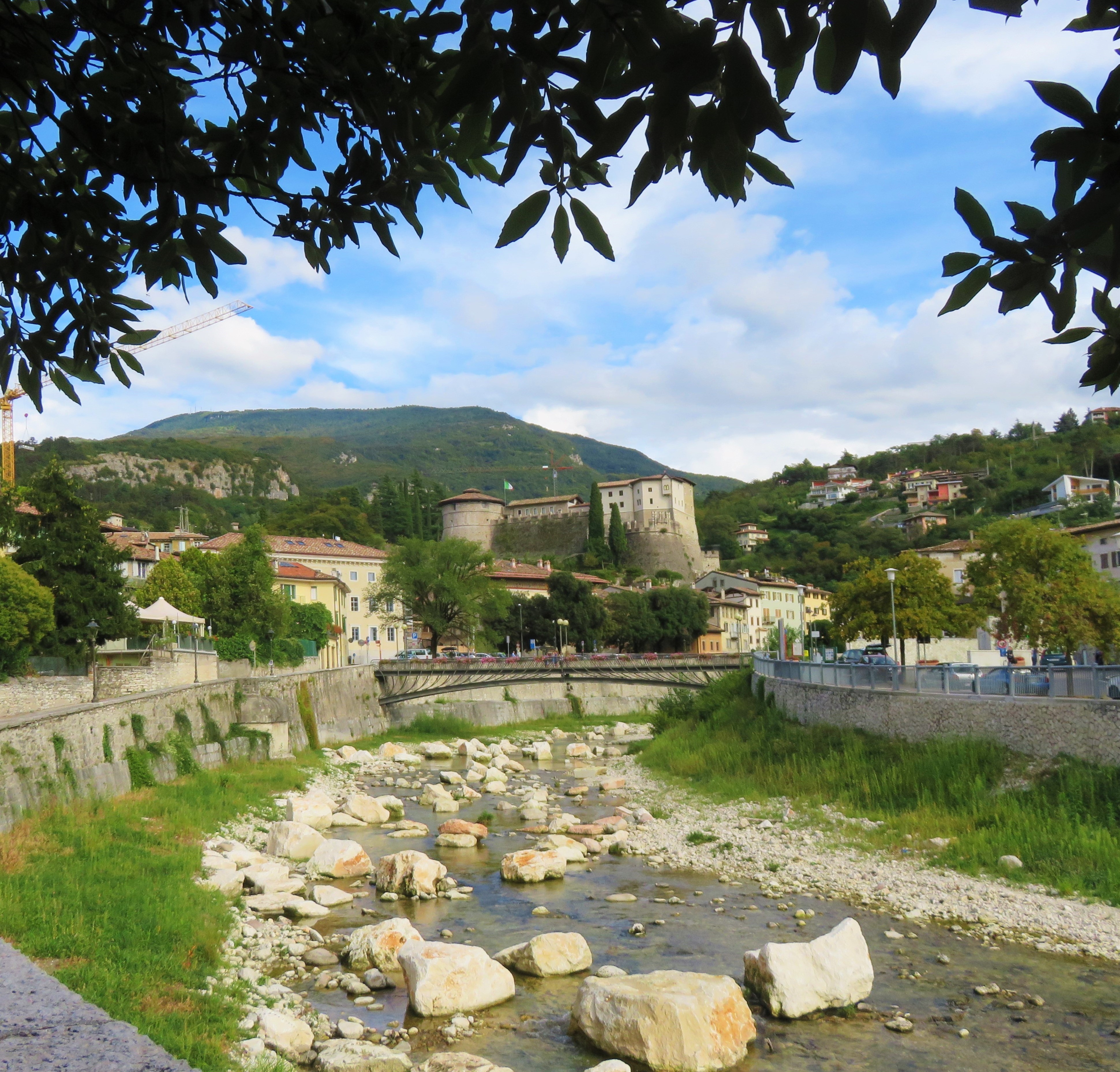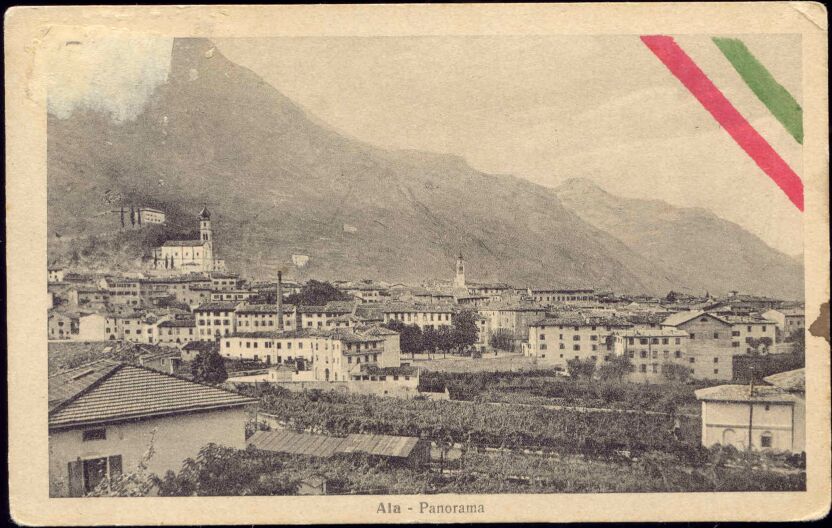|
Imperial-Royal Mountain Troops
The Imperial-Royal Mountain Troops (german: Kaiserlich-königliche Gebirgstruppe) were founded in 1906 as part of the Austrian Landwehr, the territorial army of the Cisleithanian half of the Austro-Hungarian Empire. As a result, the abbreviation "k.k." (for ''kaiserlich österreichisch, königlich böhmisch'' or "Imperial Austrian, Royal Bohemian") was used and not "k.u.k." ("Imperial and Royal") which would have implied a connexion with the Hungarian half of the Empire. Proposed in a memorandum by Conrad von Hötzendorf, in February 1906 the War Ministry in Vienna convened a session on Alpine border security. Field Marshal Tunk, agreed with him and put forward a concept, the fundamentals of which were then carried out. The existing state rifle regiments were to be trained as mountain troops and, together with the ''Landsturm'' border patrol companies and gendarmerie departments were to form the backbone of a territorial defence force with local knowledge on the border of Tyro ... [...More Info...] [...Related Items...] OR: [Wikipedia] [Google] [Baidu] |
Austrian Landwehr
The Imperial-Royal Landwehr (german: kaiserlich-königliche Landwehr or ''k.k. Landwehr''), also called the Austrian Landwehr, was the territorial army of the Cisleithanian or Austrian half of the Austro-Hungarian Empire from 1869 to 1918. Its counterpart was the Royal Hungarian Landwehr (''k.u. Landwehr''). The two ''Landwehrs'', together with the Common Army and the Imperial and Royal Navy, made up the Austro-Hungarian Army, armed forces (''Bewaffnete Macht'' or ''Wehrmacht'') of Austria-Hungary. While the name, "Imperial-Royal", might seem to suggest a link between the "Imperial" (Cisleithania, Cisleithanian) and "Royal" (Transleithania, Transleithanian or Hungarian) halves of the Empire, in this context "Royal" actually refers to the Kingdom of Bohemia (''Königreich Böhmen'' or ''České království)'' - not a sovereign kingdom on par with the Kingdom of Hungary, but a Crown land (Austria), crownland of Cisleithanian Austria-Hungary and possession of the Habsburgs, who remain ... [...More Info...] [...Related Items...] OR: [Wikipedia] [Google] [Baidu] |
Carinthia (state)
Carinthia (german: Kärnten ; sl, Koroška ) is the southernmost Austrian state, in the Eastern Alps, and is noted for its mountains and lakes. The main language is German. Its regional dialects belong to the Southern Bavarian group. Carinthian Slovene dialects, forms of a South Slavic language that predominated in the southeastern part of the region up to the first half of the 20th century, are now spoken by a small minority in the area. Carinthia's main industries are tourism, electronics, engineering, forestry, and agriculture. Name The etymology of the name "Carinthia", similar to Carnia or Carniola, has not been conclusively established. The ''Ravenna Cosmography'' (about AD 700) referred to a Slavic "Carantani" tribe as the eastern neighbours of the Bavarians. In his ''History of the Lombards'', the 8th-century chronicler Paul the Deacon mentions "Slavs in Carnuntum, which is erroneously called Carantanum" (''Carnuntum, quod corrupte vocitant Carantanum'' ... [...More Info...] [...Related Items...] OR: [Wikipedia] [Google] [Baidu] |
Innichen
Innichen (; it, San Candido , lld, Sanciana) is a municipality in South Tyrol in northern Italy. It is located in the Puster Valley on the Drava River, about northeast of Bolzano, on Italy's border with Austria. It hosts Italy’s International Snow Sculpture Festival each year. Innichen is renowned for its ski resorts, and it includes the natural park of Tre Cime. Geography Innichen borders the municipalities of Toblach, Innervillgraten (Austria), Sexten, and Sillian (Austria). History Innichen is home to the Innichen Abbey, founded in the late 8th century (769) by duke Tassilo III of Bavaria, belonging to the Prince-Bishopric of Freising. The abbey itself was disestablished in 1785, while the surrounding estates were acquired by the County of Tyrol after the Mediatisation of 1803 (''Reichsdeputationshauptschluss''). According to the terms of the Treaty of Saint-Germain, Innichen became part of the Kingdom of Italy in 1919. Innichen is still the site of a Franciscan mo ... [...More Info...] [...Related Items...] OR: [Wikipedia] [Google] [Baidu] |
3rd Imperial-Royal State Rifles (Innichen)
Third or 3rd may refer to: Numbers * 3rd, the ordinal form of the cardinal number 3 * , a fraction of one third * 1⁄60 of a ''second'', or 1⁄3600 of a ''minute'' Places * 3rd Street (other) * Third Avenue (other) * Highway 3 Music Music theory *Interval number of three in a musical interval **major third, a third spanning four semitones **minor third, a third encompassing three half steps, or semitones **neutral third, wider than a minor third but narrower than a major third ** augmented third, an interval of five semitones **diminished third, produced by narrowing a minor third by a chromatic semitone *Third (chord), chord member a third above the root *Degree (music), three away from tonic ** mediant, third degree of the diatonic scale **submediant, sixth degree of the diatonic scale – three steps below the tonic **chromatic mediant, chromatic relationship by thirds * Ladder of thirds, similar to the circle of fifths Albums *''Third/Sister Lovers'' ... [...More Info...] [...Related Items...] OR: [Wikipedia] [Google] [Baidu] |
Riva Del Garda
Riva del Garda (''Rìva'' in local dialect) is a town and ''comune'' in the northern Italian province of Trento of the Trentino Alto Adige region. It is also known simply as ''Riva'' and is located at the northern tip of Lake Garda. History Riva del Garda belonged to the Republic of Venice, the Bishopric of Trent, the Napoleonic Kingdom of Italy and later (1815–1918) to the Austro-Hungarian Empire (when it was known as ). During the Third Italian War of Independence, Riva del Garda was an important supply base for the Austrian navy and was the only town on the lake captured by Italian forces. In 1918, after the end of World War I, Riva del Garda, with the rest of the Trentino, became part of the Kingdom of Italy. Riva was the terminus for the long Mori–Arco–Riva railway line, opened in 1891. However, the railway line closed in 1936 and the railway terminus has been converted into a restaurant. Austrian dictator Kurt Schuschnigg was born in the town in 1897 and was of ... [...More Info...] [...Related Items...] OR: [Wikipedia] [Google] [Baidu] |
Meran
Merano (, , ) or Meran () is a city and ''comune'' in South Tyrol, northern Italy. Generally best known for its spa resorts, it is located within a basin, surrounded by mountains standing up to above sea level, at the entrance to the Passeier Valley and the Vinschgau. In the past, the city has been a popular place of residence for several scientists, literary people, and artists, including Franz Kafka, Ezra Pound, Paul Lazarsfeld, and also Empress Elisabeth of Austria, who appreciated its mild climate. Name Both the Italian () and the German () names for the city are used in English. The Ladin form of the name is . The official name of the municipality (''comune'') is ''Comune di Merano'' in Italian and ''Stadtgemeinde Meran'' in German (both are in official use). History In 17th-century Latin, the city was called ''Meranum''. Other archaic names are ''Mairania'' (from 857 AD) and ''an der Meran'' (from the 15th century). Origin The area has been inhabited since the thir ... [...More Info...] [...Related Items...] OR: [Wikipedia] [Google] [Baidu] |
Rovereto
Rovereto (; "wood of sessile oaks"; locally: ''Roveredo'') is a city and ''comune'' in Trentino in northern Italy, located in the Vallagarina valley of the Adige River. History Rovereto was an ancient fortress town standing at the frontier between the bishopric of Trento – an independent state until 1797 – and the republic of Venice, and later between Austrian Tyrol and Italy. In the Middle Ages it was known by its German toponyms ''Rofreit'' and ''Rovereith''. This town started to be populated with inhabitants of the prehistory with traces that were found where today are the oldest ways which belong to the actual main historical centre, around via della Terra. The town has a complexity of plans which are printed in various developments, as if it could have different directions to evolve an ideal, brought towards its completeness in the 15th century, from the model of Siena – the leaf of the crown and the classic Athens reference of the foxil Nautilus. Some of the trace ... [...More Info...] [...Related Items...] OR: [Wikipedia] [Google] [Baidu] |
Ala (Trentino)
Ala is a comune in Trentino, north-eastern Italy. Until the First World War, it was an important border town between the Kingdom of Italy The Kingdom of Italy ( it, Regno d'Italia) was a state that existed from 1861, when Victor Emmanuel II of Sardinia was proclaimed King of Italy, until 1946, when civil discontent led to an institutional referendum to abandon the monarchy and f ... and the Austro Hungarian Empire. It was the birthplace in 1896 of the supercentenarian Venere Pizzinato who lived to be 114. References External links Official website {{TrentinoAltoAdige-geo-stub ... [...More Info...] [...Related Items...] OR: [Wikipedia] [Google] [Baidu] |
Strigno
Strigno (german: Striegen) is a ''frazione'' of the ''comune'' (municipality) of Castel Ivano, Trentino, in the northern Italian region Trentino-Alto Adige/Südtirol, located about east of Trento Trento ( or ; Ladin and lmo, Trent; german: Trient ; cim, Tria; , ), also anglicized as Trent, is a city on the Adige River in Trentino-Alto Adige/Südtirol in Italy. It is the capital of the autonomous province of Trento. In the 16th centu .... It was an independent commune until 1 January 2016. Frazioni of Trentino-Alto Adige/Südtirol {{TrentinoAltoAdige-geo-stub ... [...More Info...] [...Related Items...] OR: [Wikipedia] [Google] [Baidu] |
Battalion
A battalion is a military unit, typically consisting of 300 to 1,200 soldiers commanded by a lieutenant colonel, and subdivided into a number of companies (usually each commanded by a major or a captain). In some countries, battalions are exclusively infantry, while in others battalions are unit-level organizations. The word battalion came into the English language in the 16th century from the French language ( French: ''bataillon'' meaning "battle squadron"; Italian: ''battaglione'' meaning the same thing; derived from the Vulgar Latin word ''battalia'' meaning "battle" and from the Latin word ''bauttere'' meaning "to beat" or "to strike"). The first use of the word in English was in the 1580s. Description A battalion comprises two or more primary mission companies which are often of a common type (e.g., infantry, tank, or maintenance), although there are exceptions such as combined arms battalions in the U.S. Army. In addition to the primary mission companies, a battal ... [...More Info...] [...Related Items...] OR: [Wikipedia] [Google] [Baidu] |
1st Imperial-Royal State Rifles (Trient)
First or 1st is the ordinal form of the number one (#1). First or 1st may also refer to: *World record, specifically the first instance of a particular achievement Arts and media Music * 1$T, American rapper, singer-songwriter, DJ, and record producer Albums * ''1st'' (album), a 1983 album by Streets * ''1st'' (Rasmus EP), a 1995 EP by The Rasmus, frequently identified as a single * '' 1ST'', a 2021 album by SixTones * ''First'' (Baroness EP), an EP by Baroness * ''First'' (Ferlyn G EP), an EP by Ferlyn G * ''First'' (David Gates album), an album by David Gates * ''First'' (O'Bryan album), an album by O'Bryan * ''First'' (Raymond Lam album), an album by Raymond Lam * ''First'', an album by Denise Ho Songs * "First" (Cold War Kids song), a song by Cold War Kids * "First" (Lindsay Lohan song), a song by Lindsay Lohan * "First", a song by Everglow from ''Last Melody'' * "First", a song by Lauren Daigle * "First", a song by Niki & Gabi * "First", a song by Jonas Brot ... [...More Info...] [...Related Items...] OR: [Wikipedia] [Google] [Baidu] |




